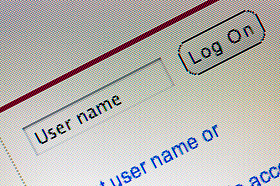هل يصح ان Google+ والفيسبوك يمنعوا الأسماء المستعارة? عبر عن رأيك هنا.

في المناظرة حول حرية التعبير، نفضل تعريف الناس بأنفسهم من خلال إعطاء أسمائهم الحقيقية، ونعتقد أنه ينبغي أن يكون معيارا للنقاش المتحضر في دولة حرة، فمن الأفضل وأكثر صدقا وأكثر شخصيا إذا نحن نعرف لمن نتحدث، بالرغم من ذلك، ندرك أن هناك ظروف تشرط عدم كشف الهوية لكي يتمكن الانسان ان يتكلم بحرية، سواء لأنه يعيش في دولة غير حرة أو لأنه يريد أن يكتب بصراحة عن مجتمعه، صاحب عمله أو أسرتة. ما رأيك؟























reply report Report comment
Real names are ok for discussions of chocolate flavor preferences. With sensitive issues, real names can be dangerous. Also, in a discussions the argument should count, not the author.
reply report Report comment
Nezahvalno je generalizovati stav na ovu temu jer ima dosta argumenata za i protiv anonimnosti/potpisa,a uglavnom zavisi od nacina i svrhe u koje koristite internet. Koliko nas pseudonim zastiti,toliko nam oduzima na kredibilitetu ako iznosimo svoje misljenje i ako smo aktivan clan neke internet zajednice. S druge strane,ako smo samo pasivni konzument,nepoverljiv u sistem i sa zeljom da zastitimo svoju privatnost,ta vrsta anonimnosti je opravdana.
reply report Report comment
Actually, I think that Facebook is serious enough to show people’s real names. You can just show some part of information there and not show something you don’t want the whole world knows.
If you want to live in some iamginary world, you can use some other social web-site that is used specially for all your “fantasies”
What concerns BIG BOSS who checks what his office people do whe they have free time – I think he should be more interested in what these people give him at work and how much profit he gets thanks to them. I am sure that he also has something he would like to hide from his emploees but that dosn’t mean that nobody will work for him because of some moral principles. Business is not love ))) That is just honest eachange!!! if honest… ))
reply report Report comment
It’s up to Google and Facebook to decide what should be allowed on their respective websites. They provide services on certain terms that we as customers naturally have to accept if we are to use those services. I do, however, condemn the growing amount of news sites which require facebook login to comment. I think pseodonyms are necessary in order to achieve a “free” debate, as people who have to sign with their real names will always be afraid of expressing uncomfortable opinions.
Like Oscar Wilde said: “Man is least himself when he talks in his own person. Give him a mask, and he will tell you the truth.”
reply report Report comment
I don’t think it’s right at all for Google+ and Facebook to ban pseudonyms because in some cases anonymity is essential for people to be able to express their opinions openly and without fear. For example, I just came back from China and for human rights activists and people who want to change the system or even protests through social media, they need the anonymity otherwise they could get arrested or worse. Not every country is open to free speech and expression against the norm.
reply report Report comment
I agree with hdim. People need to be held accountable for the messages they promote. While this may be hindering in some instances of oppression, I think that anonymity and a lack of responsibility would get abused, doing more harm than good.
reply report Report comment
The stance taken by Facebook and Google+ is primarily financial, not ethical; real people, whose data can be harvested and transformed into marketing profiles, are valuable – pseudonymous people are not. To use either service is implicitly to acknowledge that one agrees to be utilised in such a way.
reply report Report comment
Although the use of real names promotes responsibility, one should not be prevented from contributing to a discussion by setting a prerequisite of exposing his identity.
Internet is a world wide forum and administrators should not overlook the fact that not everyone comes from a social background and a legal system that shows respect to the freedom of expression.
So it’s more important to give people the chance to communicate, rather than to condemn secrecy.
reply report Report comment
Dr Williams Archbishop of Canterbury (ABC) said when speaking to the press on 15 June 2005 ‘the underlying reason for all concealment is bound to be corrupt and mystificatory’. I agree with that believing concealment must lead to corruption which is the basis of injustice in the world which in its turn is the basis of power that stems from denial of free speech. Anybody who is registered on this site has an obligation to make an honest declaration of identity. Who is to know the declaration is the truth? That is down to the integrity of the person is it not? Should integrity not be one of the ten principles for without that whatever is written down cannot be trusted can it?
reply report Report comment
I think due to the wide access of information available, there are circumstances in which anonymity is preferable–particularly for those seeking employment. However, then I wonder whether the desire for anonymity stems from the fact that we have lost the art of informed debate. Oftentimes, people perceive others who speak in opposition towards certain viewpoints as committing ad hominen attacks instead of sharing their opinions. I hope this website can bring us back to debating and discussing openly.